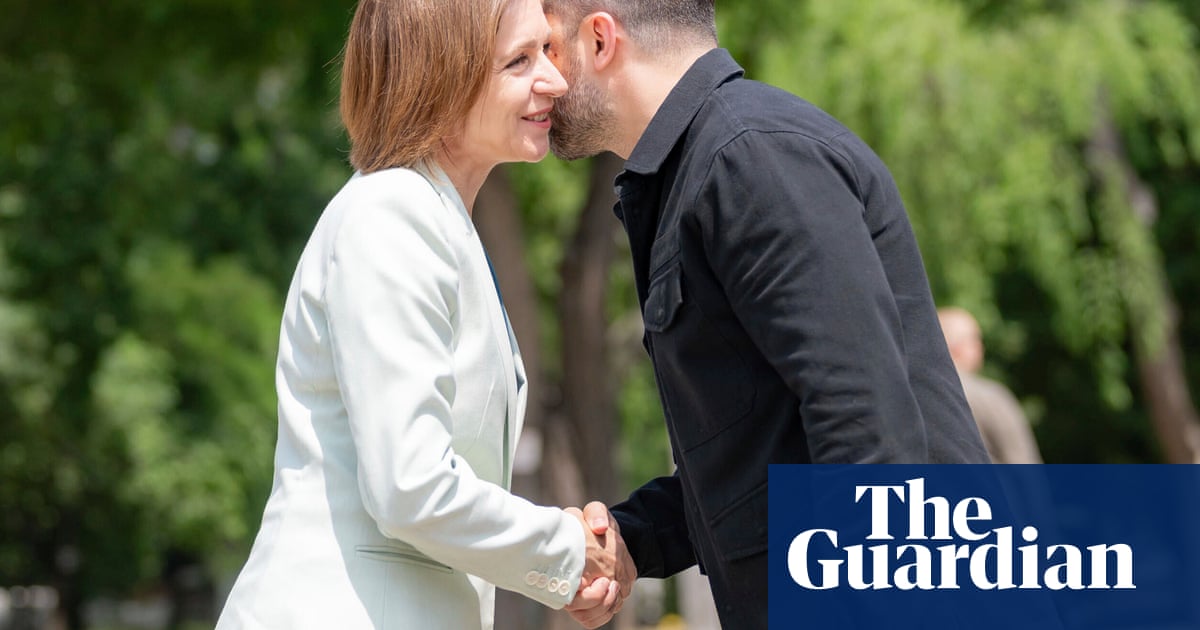Russia andUkraineare expected to exchange severely wounded soldiers on Thursdayin the latest stage of a large-scale agreement to free more than 1,000 prisoners of war by each side. “Tomorrow, we will begin urgent ‘sanitary exchanges’ of severely wounded prisoners,” Russia’s top negotiator, Vladimir Medinsky, posted.
On Wednesday, a Ukrainian government agency announced that“the bodies of 1,212 fallen defenders were returned to Ukraine”. Russia’s top negotiator, Vladimir Medinsky, said Russia had “received the remains of 27 Russian soldiers”. Ukraine did not say how many bodies it returned to Russia.
Among the bodies returned on Wednesday were the remains of Ukrainian soldiers killed fighting in theKharkiv, Lugansk, Donetsk, Zaporizhzhia and Kherson regions, Kyiv said, as well as those killed during Ukraine’sincursion into Russia’s Kursk region. Ukraine said its experts “will identify the deceased as soon as possible”.
The Ukrainian military said on Wednesday that it had struck amajor Russian gunpowder plant in the western Tambov region, causing a fire. It characterised the plant as one of the main facilities in Russia’s military industrial complex, making gunpowder for small arms, artillery and rocket systems. The Tambov regional governor, Yevgeny Pervyshov, confirmed an attack by drones and a fire. The Ukrainian military also said it recordedexplosions at an ammunition depot in Russia’s Kursk region and an airfield depot in Russia’s Voronezh region.
Volodymyr Zelenskyy said on Wednesday that Russia was determined to sow chaos in and destroy the south of his country as well as nearby Moldova and Romania, and called for increased pressure on Moscow to prevent further military threats. The Ukrainian president was addressing leaders of 12 south-east European leaders gathered in the Black Sea port of Odesa.
“Russian military plans are aimed at this region, and then at the borders with Moldova and Romania,” Zelenskyy said. “We need protection now. But even more, we need long-term guarantees that this will never happen again.” Odesa, site of three ports, has been a frequent target of Russian air strikes and came under amassive drone attack on Monday that targeted an emergency medical building, a maternity ward and residential buildings.
Much attention has focused on a possible Russian threat toMoldova, where the pro-European president, Maia Sandu, has accused Moscow of trying to destabilise her country and unseat her. Elections are being held in September. Sandu told the conference that Moldova “knows just what hybrid war is and is prepared to share its experience. Moldova is facing one of its most important elections. Russia wants to see Moldova turn away from Ukraine. More to the point, it wants to use Moldova against Ukraine and the EU.”
Serbia’s Russia-friendly president, Aleksandar Vucic, attended the Odesa summitwhere he refused to sign a joint declaration calling for tougher sanctions against Moscow. It was Vucic’s first visit to Ukraine since taking office over a decade ago. Vucic told Serbian media on Wednesday that the signing of the “anti-Russian” declaration wasn’t “easy and simple for us”, noting its mention of sanctions as one reason for abstaining. “But I would like to once again express my full gratitude to President [Volodymyr] Zelenskyy for the exceptional hospitality here in Odessa,” Vucic said.
Aircraft leasing companies have won a $4.7bn (£3.4bn) lawsuit against insurers over their planes stranded in Russiaafter the invasion of Ukraine in February 2022.Lisa O’Carroll reportsthat the high court in London ruled the planes had been “lost” in March 2022 and the six aircraft leasing companies, including Ireland’s AerCap and Dubai Aerospace Enterprise (DAE), could therefore recover losses from their “war risks insurers” AIG, Lloyd’s, Chubb and Swiss Re, as the cause of the loss was “an act or order of the Russian government”.
Restoration work started on Wednesday onKyiv’s Unesco-listed 11th-century Saint Sophia Cathedral – one of the main symbols of Ukraine – after it was damaged by Russian strikes a day earlier. Zelenskyy said part of the cathedral’s facade collapsed. “For all people who truly know history and who are no strangers to Christianity, any threat of damage or destruction to St Sophia is absolutely unacceptable, catastrophic.”
Russia sent Tu-22M3 long-range bombers on a flight over the Baltic Seaon Wednesday, the defence ministry said, in the first such mission since Ukraine’s stunning 1 June attack where bombers were destroyed or badly damaged by drones atair bases in Siberia and the far north.
